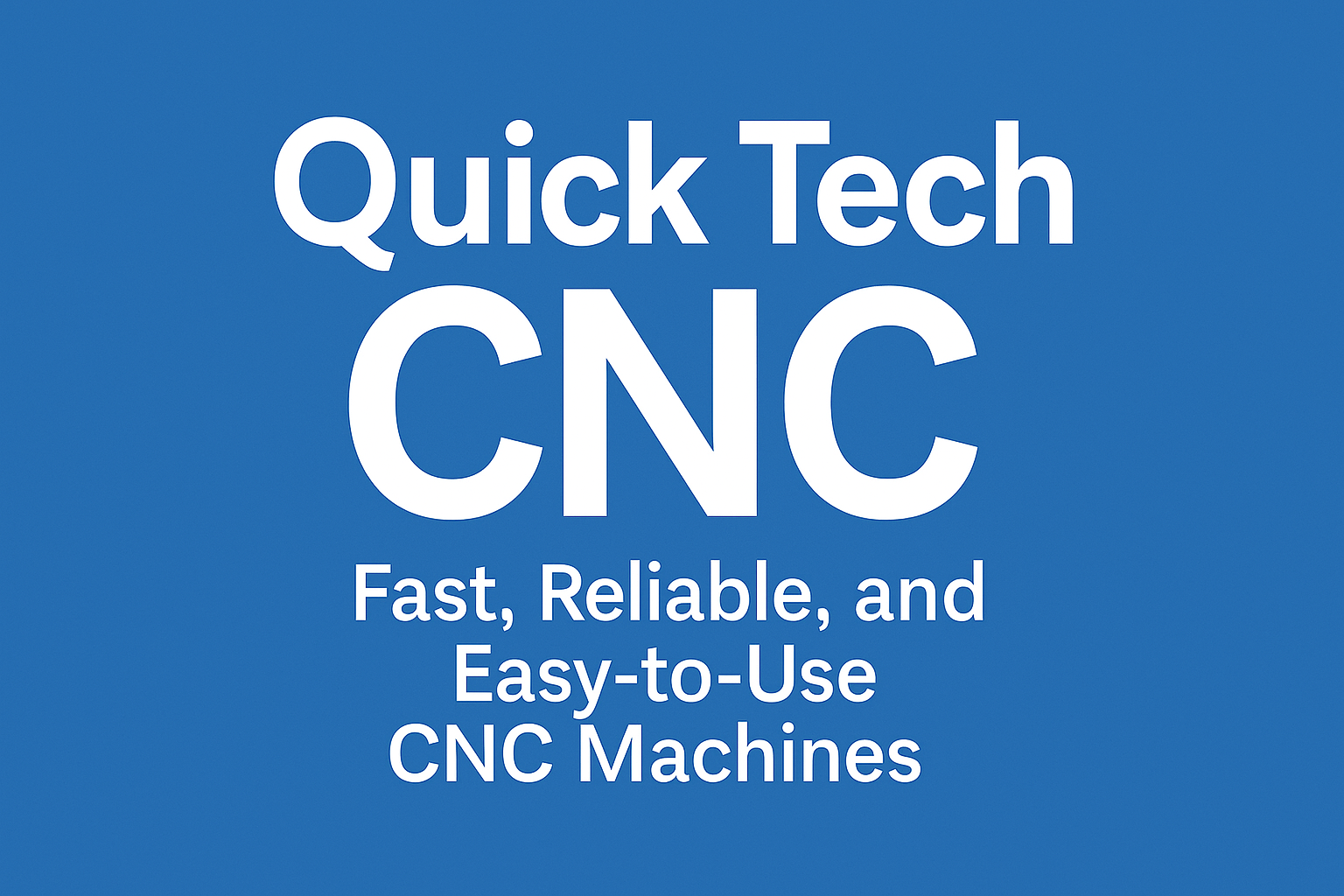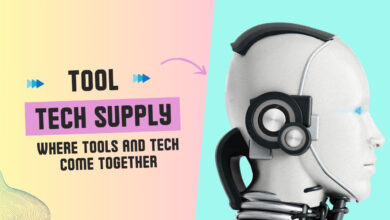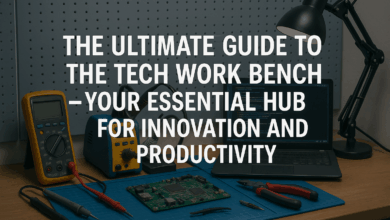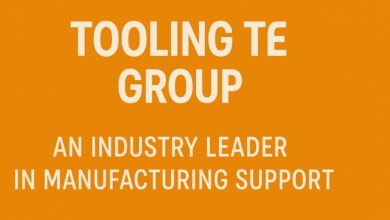Quick Tech CNC: Fast, Reliable, and Easy-to-Use CNC Machines

What Is Quick Tech CNC? Quick Tech CNC builds small but powerful CNC machines. These tools are made for shops that want speed and accuracy. They offer lathes and milling machines that fit in tight spaces. Many users choose them because they work well without costing too much. The company makes machines that are easy to learn and use. Their systems come with controls you can trust. You don’t need a big shop or a big budget to run one. Quick Tech CNC is known for making high-quality machines that fit real-world needs.
These machines are popular with schools, makers, and small factories. They help users make precise parts fast. The designs are strong and built to last. This makes them a solid choice for many types of projects. If you’re new to CNC or upgrading your setup, Quick Tech CNC might be right for you. It gives you control and power without the hassle. That’s why so many people are choosing it today.
Why Choose Quick Tech CNC?
Quick Tech CNC machines are compact and easy to set up. You can place them in small workshops or even at home. They do not take up much space but still deliver a strong performance. This makes them great for users with limited room. These machines are built with cast iron bases. That helps them stay steady during cutting. Vibration is reduced, which leads to better results. Users get smoother cuts and more accurate parts every time.
They also support multiple control systems. You can pick Fanuc, Mach3, or Fagor, depending on what you know. This flexibility makes it easier to switch or upgrade. You won’t be locked into one system. Quick Tech CNC machines are affordable. They cost less than big industrial machines. But they still offer strong features like high-speed spindles and tooling options. That’s why many users love them.
Popular Quick Tech CNC Models
Quick Tech CNC offers several models to suit different users. Each model has its own specs and uses. Let’s look at some common ones.
The QT-8A is small and great for beginners. It works well in schools and hobby shops. The QT-12M lets you turn manual lathes into CNC machines. This is a low-cost way to upgrade. The QT-200L is bigger and suited for more advanced jobs. It can handle heavier work and longer parts. The QT-300V is a vertical mill. It’s good for shops that need multi-axis machining. Each model serves a unique purpose. You should pick based on your space, skills, and job type.
Features That Make Quick Tech CNC Stand Out
Quick Tech CNC machines are built for strength and stability. Their frames are made from heavy-duty cast iron. This reduces vibration and improves cut quality. Users get cleaner surfaces and tighter tolerances. They come with high-torque spindle motors. These motors spin fast and hold power under load. This means faster cutting and better finishes. You can machine metals like aluminum and steel with ease.
Most models support live tooling. This allows for milling, drilling, and tapping on a lathe. You can do more in one setup. That saves time and reduces errors. Their control systems are user-friendly. Whether you use Fanuc or Mach3, the interface is simple. Setup and operation are easy for new users. This lowers the learning curve and speeds up production.
Applications of Quick Tech CNC Machines
Many schools use Quick Tech CNC machines for teaching. Students learn how to operate real CNC equipment. The machines are safe and simple to use. That makes them perfect for classrooms. Small businesses use them for custom parts and short runs. These machines can produce complex shapes accurately. Shops can switch between jobs quickly. This helps meet deadlines and keep costs low.
Hobbyists enjoy using these machines for DIY projects. From engraving to part-making, there are many uses. The small size fits in garages or basements. Users can create parts for robots, bikes, or art. Prototyping labs also use Quick Tech CNC. Engineers need quick, accurate parts for testing. These machines let them build and test ideas fast. This speeds up product development. Some shops use them for medical or aerospace parts. These fields need tight tolerances and high quality. Quick Tech CNC machines can meet those demands. They offer precision without needing huge setups.
Benefits of Using Quick Tech CNC
Quick Tech CNC machines cost less than full-size industrial models. This makes them ideal for small shops or startups. You can buy one without spending a lot of money. Yet, you still get strong performance. They are easy to learn and use. Most come with simple controls and manuals. New users can start machining within hours. This saves training time and gets jobs done faster. These machines are energy efficient. They use smaller motors than big machines. That lowers your power bill over time. They also run quietly, which is good for shared spaces.
Maintenance is simple. There are fewer moving parts and no complex hydraulics. Lubrication and cleaning are straightforward. This reduces downtime and repair costs. You can install them almost anywhere. They fit in small shops, garages, or labs. No need for special floors or wiring. Just plug them in and start working. All these benefits make Quick Tech CNC a smart investment. It brings professional tools within reach of more users.
How to Get Started With Quick Tech CNC
First, decide what kind of machine you need. Think about your space and the work you do. Pick a model that matches your goals. Talk to dealers if you’re unsure. Next, buy from an authorized seller. This ensures you get real parts and support. Check reviews before buying. Make sure the seller offers setup help. Set up your machine in a clean, dry area. Make sure it has enough room and proper power. Follow the manual step by step. Don’t rush the process.
Install the control software and test the machine. Use sample programs to check movement and settings. Learn the basics before doing real jobs. Watch videos or read guides if needed. Once you’re ready, start with simple jobs. Try basic cuts and tool changes. Build your skills slowly. Over time, you’ll be able to do more complex work. Getting started is easy with Quick Tech CNC. You just need the right setup and a bit of practice.
Conclusion: A Smart Choice for Small and Mid-Sized Workshops
Quick Tech CNC offers reliable, easy-to-use machines. They are built for real users with real needs. Whether you’re a student, hobbyist, or business owner, they have something for you. Their machines are compact but powerful. They give you control without taking up space. They are made to last and perform well over time. They support multiple control systems. You can use Fanuc, Mach3, or others you already know. This makes switching easier and keeps your workflow smooth. If you’re looking for a machine that is fast, accurate, and simple, try Quick Tech CNC. It brings professional-grade tools to more people. It helps you make better parts with less effort.
Frequently Asked Questions (FAQ)
Q1. Can I use Quick Tech CNC machines at home?
Yes. They are small and quiet enough for home use. They run on standard power and fit in most garages or basements.
Q2. Are Quick Tech CNC machines good for beginners?
Yes. They are simple to learn and use. Schools often use them to teach CNC basics.
Q3. Do they support live tooling?
Some models do. Live tooling lets you drill, mill, and tap while turning. This adds more functions to your machine.
Q4. What materials can I cut with them?
You can cut metals like aluminum, brass, and mild steel. Some models can also handle plastics and wood.
Q5. What control systems do they use?
They support Fanuc, Mach3, and Fagor. You can choose based on what you already use or prefer.
Q6. Can I convert my manual lathe to CNC?
Yes. The QT-12M conversion kit turns manual lathes into CNC machines. It is easy to install.
Q7. How much do Quick Tech CNC machines cost?
Prices vary by model. Entry-level machines start around $5,000. Larger models can go up to $30,000.
Q8. Where can I buy spare parts?
Authorized dealers sell spare parts and tools. You can order online or through local suppliers.
Q9. Do they require special power setups?
No. Most models run on standard single-phase power. You don’t need special wiring or circuits.
Q10. Are they used in industry?
Yes. They are used in education, prototyping, small batch jobs, and even medical or aerospace work.



